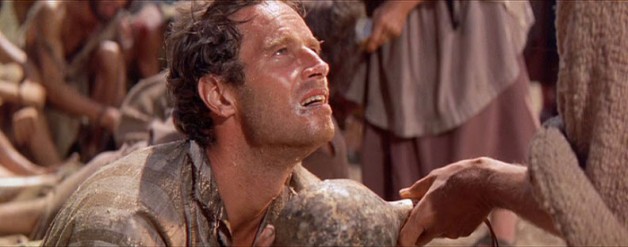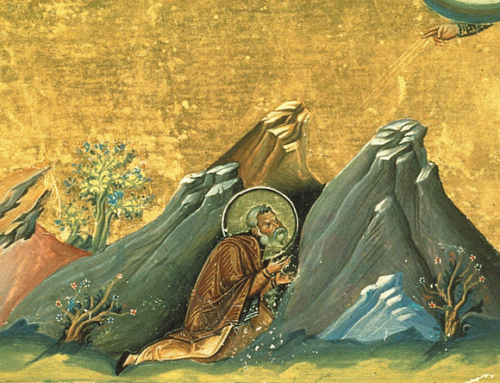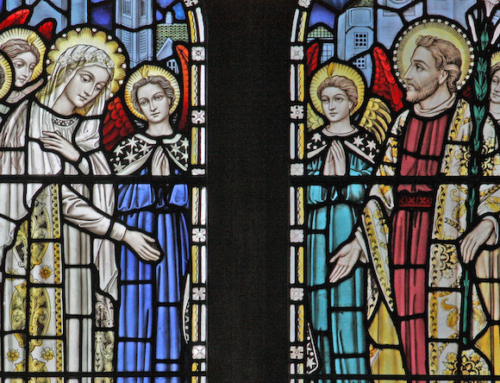Standing on his roof, the young Jewish merchant-prince Judah Ben-Hur (played by Charlton Heston) watches the newly appointed governor parade through the streets of Jerusalem. A tile falls from his roof and strikes the governor, throwing him from his horse. Messala, Ben-Hur’s childhood friend turned enemy, knowing the tile’s fall was an accident but blinded by his desire for advancement and power, sentences his former friend to rowing in the galley of a Roman warship, and imprisons his mother and sister.
Condemned to the life of a slave, Ben-Hur begins to show his remarkable faith and determination. He exemplifies the hero who truly trusts in God, giving himself over to God’s Providence and never swerving from the belief that his hope lies with the God of his fathers. As he marches across the desert with his fellow prisoners, he is given only brief stops for rest. During one of these stops, in a compelling act of charity, a character viewed only from behind stoops to refresh Ben-Hur, serving him a gourd of water. The audience recognizes this humble man as Jesus Christ. Ben-Hur, the deeply faithful Jew, is literally saved by the water given to him by the God-man, Jesus Christ.
Despite his heroic qualities, however, Ben-Hur is not a man of peace. Anger for Messala’s treachery and the desire for vengeance possess him. A craving for revenge tortures and consumes this once joyful and princely man. Esther, Ben-Hur’s romantic interest, recognizes this. She tells him, “It was Judah Ben-Hur I loved. What has become of him? You seem to be now the very thing you set out to destroy—giving evil for evil. Hatred is turning you to stone. It’s as though you had become Messala.”
Esther hears Jesus preach the Sermon on the Mount and tells Ben-Hur about his message of peace and forgiveness. Ben-Hur agrees to go see Jesus, but he does not go seeking peace for his own soul; rather, he goes in hopes of a miracle for his dying sister.
Upon reaching Jerusalem, he discovers the trial of Jesus underway. He watches as Jesus climbs Calvary and stands amazed when he stumbles and falls right in front of him. Recognizing Jesus from their first encounter, he rushes to try to give him some water. In this moment, he becomes the compassionate hero. He suffers along with Jesus. The tables are now turned, and he follows Jesus all the way to his crucifixion.
Later, retelling the story of Jesus’ death, Ben-Hur says, “I felt his voice take the sword out of my hand.” Ultimately, it is God’s own suffering and forgiveness that heal Judah Ben-Hur. Only Christ gives this hero true peace.
✠
Image: Still from Ben-Hur







